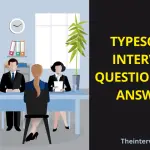Phone interviews are generally one of the first stages of the interview process for most of the profiles, which generally don’t go more than 10-20 minutes. Thus it is often difficult to understand how the phone interview was. You may have felt ambiguity for the same. So, how to know if you failed a phone interview?
Some signs clearly show that your interview has not gone well. The call might have ended all of a sudden without any updates, or the mood deteriorated over time. The interviewer may have said to call you back but didn’t do so; your bad performance in the phone interview is also a sign.
In recent studies and observations, it is seen that almost 50% of the candidates fail in this stage, which indicates the chance of failing is too high in phone interviews. However, these studies don’t mean to disappoint you, so don’t worry! However, It is important to know if the interview has failed. Only after knowing this can you look into rectifying your glitches in the upcoming interviews.
How To Know If You Failed A Phone Interview? #Signs
After a phone interview, it is quite common to get confused to determine whether it went well or not. Here are some signs that can make you know if you failed a phone interview:
What Is A Phone Interview?
Finding a job is not easy. One has to pass through many stages and levels to get a job. It is completely legible on the side of the organization as it wants to select the best suitable candidate. However, these stages of interviews turn into a challenge for the candidates. The phone interview is one such level/type of interview where the candidate may feel it challenging even if the procedure is simple.
As stated in the previous lines, Phone interviews are one of the preliminary stages of the interview process. This is the interview done to the candidate vis a phone call. These don’t go more than 29 minutes in many cases. Note that phone interviews can be both scheduled and unscheduled.
Why Is A Phone Interview Done?
Phone interviews are usually done to save the time of the interviewer as well as the candidate. Generally, interviewers call the candidates to know basic details of the candidates and ask them some basic questions. This way, the interviewers can filter out those candidates that don’t seem to be meeting their expectations and thus, call those few selected candidates for the next level of the interview—this saves time for the interviewer.
However, this may not be the same in some cases. The candidate may be completely interviewed over the phone. Therefore, the interview may go for more than 20 minutes.
The Phone Interview Was Shorter Than Expected – What Does It Mean?
When the candidate seems to be suitable, the interviewer may gain interest, and therefore lead to a longer phone interview. Thus a long phone interview can be a sign of a successful interview. However, a short phone interview doesn’t always mean failure. If the phone interview is shorter than expected, the following may be the reasons:
Thus a phone interview shorter than expected is not always a bad sign. However, there is a chance that you didn’t make it.
After The Phone Interview, What Happens Next?
The end of the phone interview is not the end of the interview process. Soon after the interview, it is a good habit to respond to the interviewer’s mail. Responding to the interviewer on your interest also accounts for your responsibility. This creates a good impression of the interviewer on you.
What Usually Comes Soon After A Phone Interview?
A phone interview is one of the preliminary interviews. Therefore, you can expect a mail, call, or a message from the interviewer expecting you to attend the next level of the selection process. The next level may generally include written tests, group discussions, or personal interviews directly.
How Long Does It Take To Hear Back After A Phone Interview?
The feedback after the phone interview is generally quicker. One can expect the updates of a phone interview within three to six working days in most of cases.
Can You Get Hired After A Phone Interview?
It all depends upon the confidence that the interviewer could generate from you. If the phone interview is at the introductory level, the interviewer probably cannot decide the selection as of then. However, you can create a good impact on this level. In some cases, a phone interview is given weight; in these cases, your good performance can fetch you a position soon after.
How Do You Know If The Phone Interview Went Well?
The sense of confidence that you gave to the interviewer is what leads you to get hired. You can depict if you have created enough impact in the interview to know your phone interview went good.
We tried to check out the common signs to know if you failed a phone interview in the previous lines. Let us now look into common signs that show the phone interview went good:
How Long Does It Take To Hear Back After The Phone Interview?
The feedback after the phone interview is generally quicker. One can expect the updates of a phone interview within three to six working days in most of cases.
Phone interviews—as stated in the previous lines— are generally the preliminary stage of the selection process. There can be many more stages after this. The recruiter thus usually prefers to reply earlier after the phone interview. Soon after the recruiters cover all the candidates, they start responding almost immediately. Therefore you can expect early replies for a phone interview. The interviewer, in general, can take around a few days to complete interviewing all the candidates. Thus it is legitimate to wait for at least three to six working days for the reply.
Note that waiting for a reply is useful only if you are performing well or you are confident that the phone interview went well.
Tips For Waiting To Hear Back After The Phone Interview
You are probably wrong if you think you have to sit back and wait after a phone interview. The result of the selection process is usually quite volatile. Even if you performed extremely well, you might not take it to the next level.
However, you can follow certain tips while you wait to ensure your time is not wasted. They are:
1. Don’t stop applying for other jobs
Once you are done with the interview—phone interview— you might have been waiting for the results to be declared and you be hired. But this is not the case all the time. No one can assure what the result is. Many factors may lead to the decision of the recruiters. Thus it is healthy to apply for other jobs even after you have completed a good phone interview. Continue applying for other jobs that you feel match your profile until you are assured of a position.
2. Try knowing how long it takes for the result
You can make out how much time it takes for the result. Generally, the response of a phone interview takes no more than a week. Therefore, if you have not received any response even after a week or more, you may not be taken to the next level. Thus, you need to be aware of the time taken for results and look for alternatives when the time exceeds.
3. Understand if the position is for you
It is never too late to realize things. Even if you have completed your phone interview, if you feel the profile you are interviewed for is not good for you, you still have a chance to quit it. However, be cautious in doing so.
Advantages Of Phone Interview Over Personal Interview
Following are various advantages of a phone interview over a personal face to face interview:
Few Phone interview Questions & How To Answer Them Wisely
During phone interviews, employers generally seek high-level information about you and your background to see if they should consider you to the next step in the hiring process. Therefore, you should be prepared to talk about questions like why you’re looking for a job, why you’re interested in this specific job and company, and your background. Different recruiters have different questions; however, some common questions are asked in phone interviews.
Here are those common phone interview questions:
Tell Me About Yourself
Remember, the recruiter has already gone through your resume. You are asked to tell about yourself to know more about yourself in your words. This question is the first chance to impress them with your relevant experiences, professional qualifications, and relevant personal details and hobbies.
Example answer: “As someone with an extensive background in education, I am well-equipped to provide students with guidance throughout their college career. My passion for marketing makes me confident in my ability to fulfill the role of associate at XXX company. Currently, I work as an Marketing manager at XXX company, where I guide a pool body of 3,000 employees and am assigned to directly counsel 1,000 of those employees per year. My responsibilities include making marketing strategies for each product every Quarter, addressing customer concerns, and meeting with board members to discuss change of major, program evaluations, and grade concerns. Before that, I studied education at XXX University. My degree in secondary education with a minor in psychology taught me the knowledge needed to properly understand people. Throughout my career, I have made a point to be the Marketing associate. I wish I had around when I was a student in college. I am willing to do what it takes to ensure the success. That’s why I’m so excited to be talking with you about the position at XXX company.”
Why have you applied for this position?
This question is asked to know your goals with the profile you are looking for. Therefore never say money is your priority. Be knowledgeable about responsibilities and align your goals with them.
Example answer: “I’ve been working for several years on gaining skills in your industry. I feel I have the knowledge, skills and qualifications you’re looking for, along with a unique perspective coming from a different industry. I am passionate about working in the environmental protection space, and it is time for me to make a change. I feel your company is the perfect place for me to do that.”
Tell me about what you know about this job
The recruiter may ask you this question to understand how much you know about the company’s profile. Thus be prepared with relevant information about the company and profile. You can find this information on the company websites and job publications. Remember to stay positive towards your current employer and position.
Example answer: “From the job description, I understand that you are looking for a bookkeeper to provide support to the department’s financial activities primarily related to Accounts Payable and Procurement. I also understand that you require HIPAA compliance training, for which I am certified. It sounds like many of the daily tasks include processing vendor creation, journals, check requests, wire transfers and invoice for payments. Can you tell me more about why this position is open and what needs the team needs?”
Why do you want to work here?
This question is the chance to show how the company and its norms have let you inspire to work in alignment with their goals.
Example answer: “After building my career managing hospitality staff, it has been my ultimate goal to work for a hotel that not only values the growth and achievement of their employees but also maintains an exquisite, affordable experience for their guests. I read your recent press release about implementing a truly innovative rewards program for guests at all levels, even those visiting for the first time. Your company continues to set precedence for quality service and experience, and I am looking for a career working toward that kind of mission.”
What are your salary expectations?
You should never bring the monetary discussions in the interview. However, if the recruiter starts such a discussion, you must be able to answer it with ease. This question makes the recruiter understand if your expectation is in their budget; on the other hand, they can also determine whether you are over or under-qualified for the role. Therefore, the best idea is to state a range of expectations showing you are flexible but want to earn a certain amount.
Example answer: “For this position my ideal salary would fall in the range of Rs 55,000 to Rs 65,000. I feel this is an appropriate amount for my experience level in this position.”
Test question
The recruiter seldom asks some test questions that are either related to the profile or the subject. Be prepared with the subject knowledge to deal with them. These questions determine whether you are eligible for the position; thus, be careful while answering these questions.
When can you start?
This question shows the recruiter is impressed with you. However, be transparent regarding your present commitments before you can join the new position. This way, you can show how loyal and responsible you are to the company you work for.
Example answer: “After getting an offer, I am able to start two weeks later to provide time for my current role to be filled.”
Bottom Line on How Do You Know If You Failed a Phone Interview?
Phone interviews are gaining popularity at a rapid pace. The advent of Covid has, even more, increased the popularity of work from home and phone interviews. Thus preparing for phone interviews is important in the present day. It is important to understand that there can be communication barriers in phone interviews. Thus one has easy chances for rejection. Thus it is important to be aware and take necessary care for a scheduled phone interview.
By now, you should be aware of the signs to know if you failed in the phone interview. At this stage, it is important to identify these glitches in the personal stage and rectify it in the next interviews. This way, you exponentially increase the chances of getting placed in a profile.















